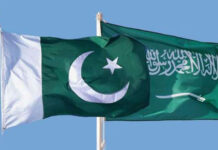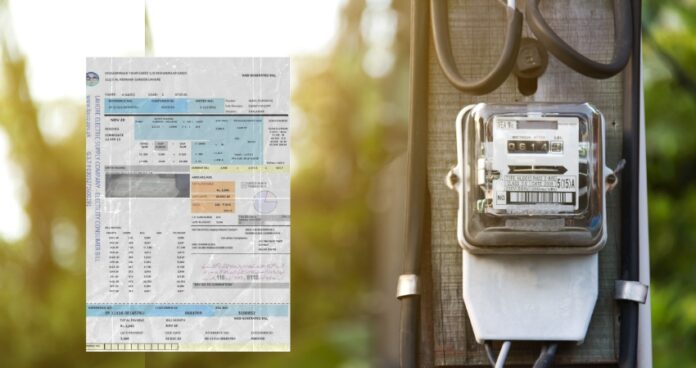ISLAMABAD: Federal Minister for Power Sardar Awais Ahmad Leghari has announced the government’s plan to reduce electricity tariffs by Rs 10–12 per unit once the discussions with the International Monetary Fund (IMF) on captive power plants ended.
He made these remarks during a meeting of the National Assembly’s Standing Committee on Energy, chaired by Muhammad Idrees. Leghari revealed that discussions with the IMF regarding captive power plants are nearing completion, setting the stage for significant changes in the country’s energy landscape.
The minister also outlined the government’s strategy to cancel agreements for expensive electricity generation. “The government has already canceled agreements for 10,000 megawatts of costly electricity and will cancel 17,000 megawatts of new projects if they do not reduce their tariffs,” Leghari explained.
He added that the energy market was being deregulated, and in the future, the private sector would be responsible for buying and selling electricity, with the government providing a facilitative environment.
He stated that the revised contracts with Independent Power Producers (IPPs) under the Power Policies of 1994 and 2002 would soon be presented to the federal cabinet. The revisions are expected to have a financial impact of Rs 1.1 trillion, which has either already been passed or will soon be passed on to consumers.
Leghari confirmed that the agreements of five IPPs have already been terminated, and contracts for eight bagasse-based IPPs have been revised. The financial impact of these revised contracts is expected to range from Rs 6 to Rs 6.50 per unit.
He further outlined the government’s commitment to tackling inefficiencies in the power sector, stating that elements within the existing tariff structure could be revised to reduce tariffs by Rs 10 to Rs 12 per unit. He expressed confidence that these reductions would take place soon, which would bring considerable relief to consumers.
The minister criticized the previous government for not addressing IPP-related issues. “Prime Minister Shehbaz Sharif ensured accountability, even for his relatives and friends,” Leghari remarked, stressing that the current government has successfully tackled these long-standing concerns.
In response to queries from members of the Standing Committee, the power minister suggested that the Federal Board of Revenue (FBR) be taken on board to address issues related to taxes on electricity bills.
On the subject of K-Electric, Leghari said that the company had sought a tariff increase of Rs 10.50 per unit, a request which the government has rejected. He explained that K-Electric’s demand for a profit of Rs 500 billion over the next five to seven years was unjustified, and NEPRA would soon make a decision on the matter. Leghari stressed that K-Electric had greatly benefitted from the uniform tariff system, which is currently under review.
Additionally, Leghari shared his plans to address electricity theft in Khyber Pakhtunkhwa, where illegal connections have caused substantial losses. He explained that, at the request of the Chief Minister, electricity was provided to feeders with the highest theft rates, on the condition that illegal connections would be removed. However, the plan was not fully implemented due to a lack of cooperation from local authorities, resulting in further financial losses.
Finally, the Minister for Power Division apprised the NA Standing Committee that the present government was fully committed to lessening the financial burden of electricity on its consumers, and prices of electricity were being gradually decreased.
He informed the committee that 70% tubewells had been solarised and the rate of electricity for the industry had been reduced. He assured the committee that every good suggestion would be welcomed and incorporated into the policy-making to facilitate the consumers.
Meanwhile, Minister for Energy while addressing the 4th International Hydropower Conference, highlighted the government’s reforms in the power sector.
“We have appointed impartial boards in all power distribution companies,” said Awais Leghari. He emphasised that the losses incurred by distribution companies had decreased significantly, citing that between July and November 2023, the losses were Rs 223 billion, but in the same period for 2024, losses were reduced to Rs 170 billion.
The minister stressed that the government is working towards a substantial reduction in electricity prices.
He mentioned that the government is reviewing various taxes included in electricity bills in order to achieve these price reductions. He pointed out the issue of the uniform tariff system, which he described as unfortunate.
According to Leghari, the system forces one company to bear the burden of another, leading to inefficiencies in the sector.
He also touched on the government’s ongoing assessment of large energy projects, such as the Diamer-Bhasha Dam, to determine whether such projects are truly in the best interests of consumers.
The minister further explained that Pakistan has historically not procured electricity on a competitive basis, which has led to financial burdens on consumers. “This is why consumers are bearing the cost today,” he remarked, adding that there had been a rush within the ministry for IPPs, with numerous companies urging the government to approve their plants.
The minister also acknowledged that the high cost of electricity has sparked a solar revolution and the country would see an increase of 10,000 to 12,000 MW in solar capacity under net metering. However, he noted that the growth in off-grid solar systems remains unaccounted for. Leghari emphasized that electricity from solar users should only be purchased at energy cost.
“We need to make tough decisions now,” Leghari stressed, acknowledging the urgency of reforms in the energy sector.























